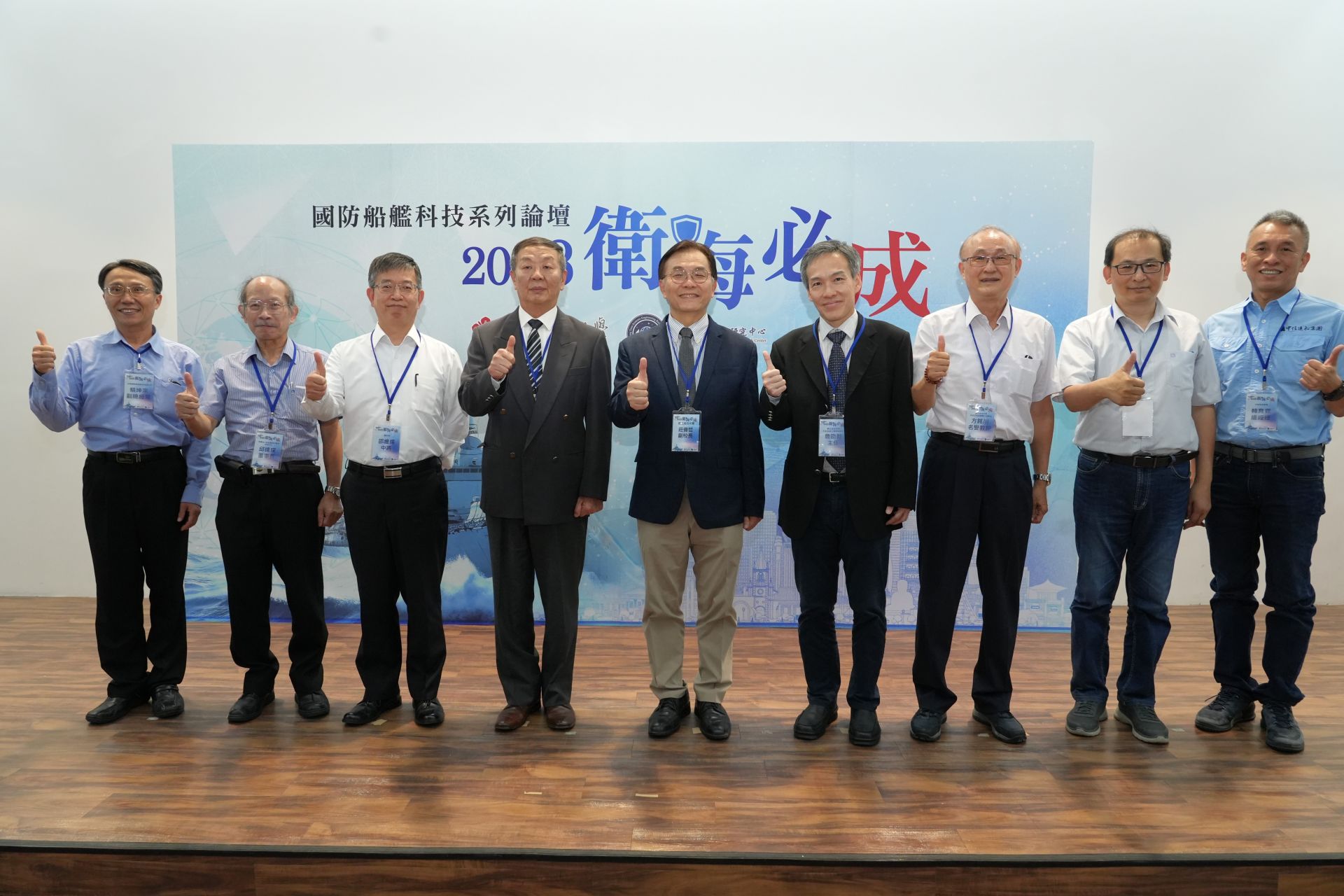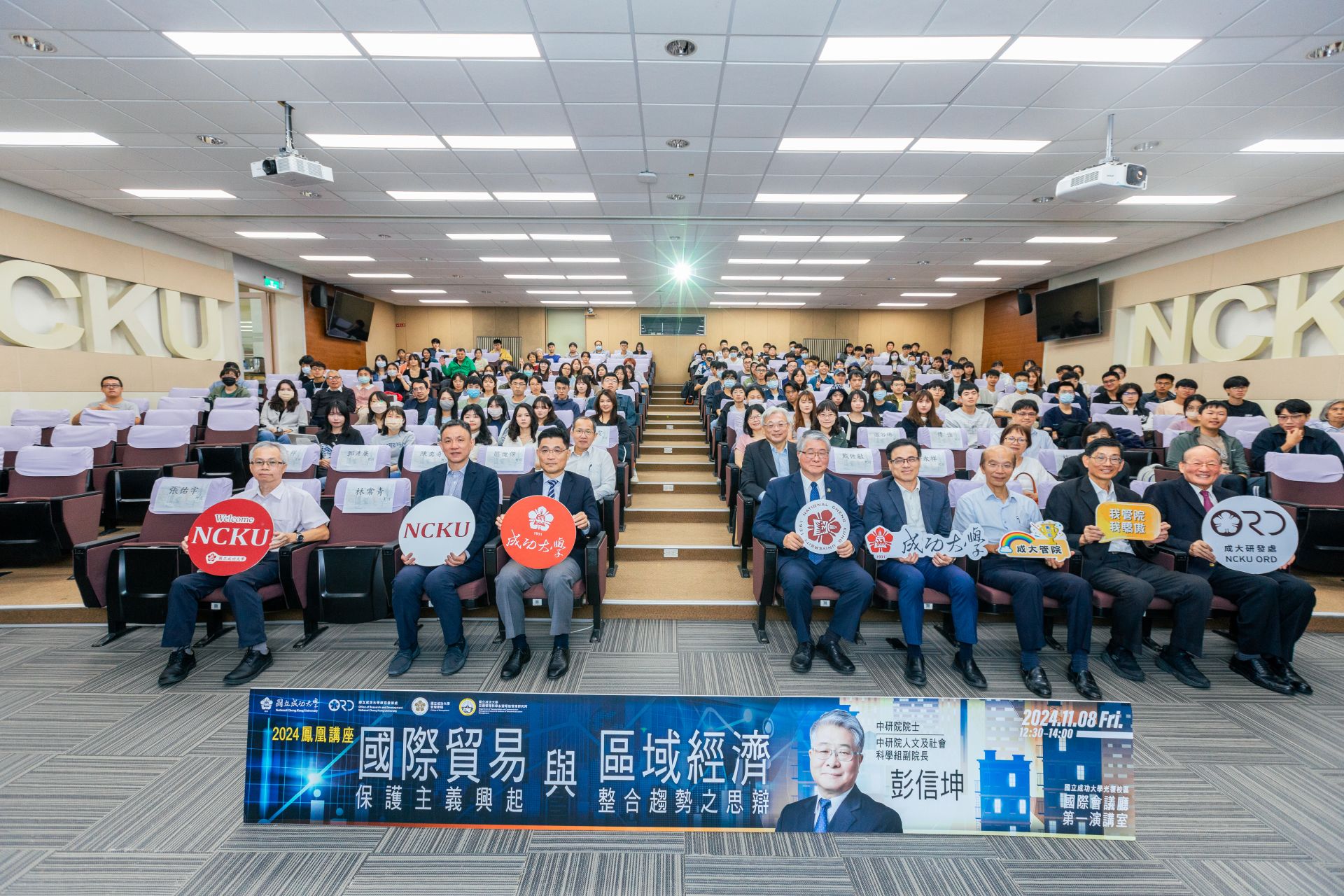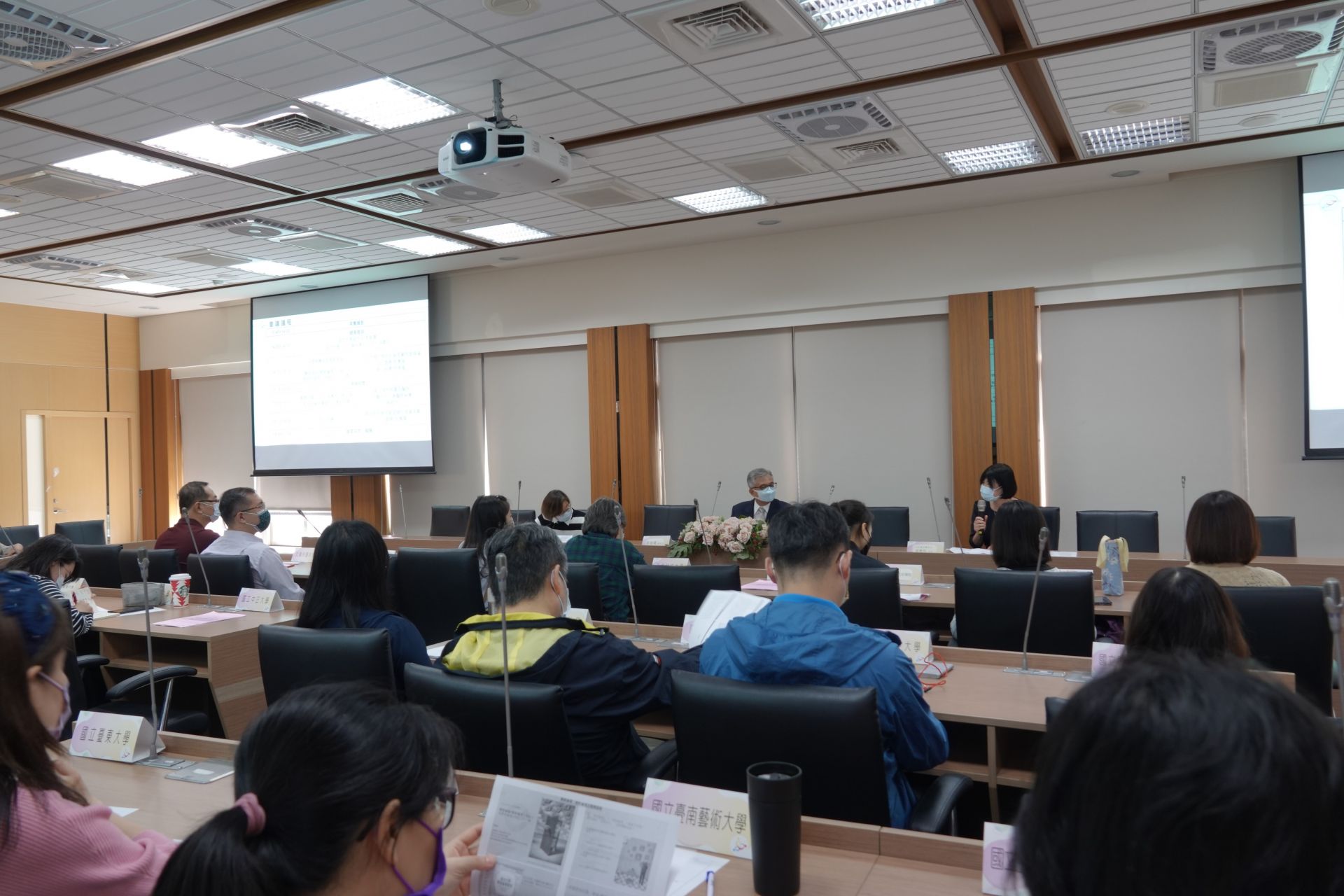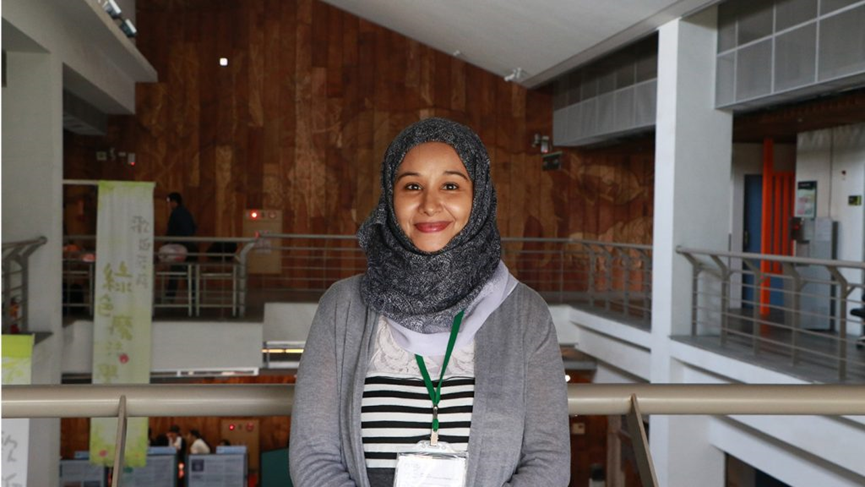SDG16
NCKU "Success at Sea—Cultivating Talent" Forum: Discussing the Training and Management of Talent in Naval & Submarine Engineerin
Peace and stability in the Taiwan Strait rely on a robust national defense as a solid backing. As the launch of the first indigenous defense submarine (IDS) prototype approaches, National Cheng Kung University (NCKU) Wong Tsoo Systems Engineering Research Center held the "Success at Sea—Cultivating Talent" forum on the afternoon of the 20th. The forum discussed the cultivation and management strategies of talent in naval and submarine engineering technology, aiming to create a win-win situation for national defense and industry. Admiral Shu-kuang Huang, a consultant to the National Security Council and the head of the Presidential Office's indigenous submarine project, delivered a speech on "The Importance of Cultivating Talent in Naval and Submarine Engineering from a National Security Perspective." He emphasized that the ocean is Taiwan's maritime lifeline and expressed the hope that the national defense industry will one day become as proud an industry as the semiconductor industry.
NCKU Vice President Woei-Jer Chuang presided over the forum's opening ceremony. He stated that under the "indigenous defense ships" policy, the demand for national defense scientific research talent has significantly increased. Cultivating interdisciplinary national defense scientific research talent is a crucial issue for academia. Senior engineer alumni from NCKU at the Taiwan Shipbuilding Corporation have been sent to the United States to learn warship design. Some alumni work as engineers at the Navy Shipbuilding Development Center, helping to plan and design various warships. Currently, about 30% of the Navy's research personnel are NCKU alumni. Many NCKU alumni also work at the National Chung-Shan Institute of Science and Technology and the Ship and Ocean Industries R&D Center. NCKU is confident that it will continue to be a hub for cultivating national defense scientific research talent and developing national defense technology innovation in the future. It is also willing to cooperate with other universities to cultivate more interdisciplinary talent for the country.
Professor Shau-Shiun Jan, Director of the Wong Tsoo Systems Engineering Research Center, stated that for Taiwan to have the ability to achieve national defense autonomy, it is essential not only to understand the needs but also to have the belief and courage to achieve it. This is the way to national defense autonomy. Taiwan has seven major academic research centers, and Shau-Shiun Jan's center is the only one responsible for both aerospace and naval military systems. After the IDS prototype submarine is completed, the next step is to continue the cultivation of shipbuilding talent, carrying on the center's mission.
The Wong Tsoo Systems Engineering Research Center is hosting a series of forums focused on naval technology, planning three major thematic forums based on talent cultivation, interdisciplinary research and development, and development strategies. The aim is to exchange ideas with professionals in related fields and plan research directions that meet national defense practical needs while cultivating national defense scientific research talent. Given the urgent need for interdisciplinary national defense technology professionals, the talent cultivation theme will be the first to be addressed.
In his speech, Admiral Huang Shu-kuang emphasized that Taiwan, as a maritime nation, relies on the ocean as its maritime lifeline. If the ocean is controlled, the lifeline is cut off. The ocean is crucial to Taiwan's survival and development. Taiwan's maritime strategy can be broadly divided into four aspects: technological development, shipbuilding, maritime expansion, and national security. Practically revitalizing the national water industry, developing ocean resources, advancing the shipbuilding industry, and implementing maritime rights protection require investment and resources from various ministries.
The primary task of maritime strategy is cultivating maritime talent. Universities, technological industries, shipbuilding industries, private sectors, and national defense security all need talent cultivation. Admiral Huang emphasized that talent is never enough and must be continually cultivated for sustainable management. Talent should not be judged by academic qualifications alone; placing people in the right positions makes them talented, while placing them wrongly renders them useless.
He also pointed out in his speech that Taiwan's technological industry is highly advanced. Some sensitive key components cannot be obtained from advanced countries, but Taiwanese manufacturers can produce them if they know the specifications. Admiral Huang expressed regret that Taiwan's technology is excellent but lacks integration. He hopes that the development of the national defense industry can follow the semiconductor industry and become another proud industry for Taiwan.
Following this, Taiwan International Shipbuilding Corporation's Vice President Kun-tsung Tsai delivered a speech on "Cultivating and Managing Submarine Engineers." He first introduced the procedures for building submarines and pointed out that cultivating submarine engineers is more challenging than training general warship engineers, who in turn are more difficult to train than shipbuilding engineers. After completing the first IDS, continuing to cultivate and manage the hard-earned submarine engineers is a significant task for Taiwan Shipbuilding Corporation.
Subsequently, academia and industry representatives conducted extensive discussions on "Future Shipbuilding Talent Needs and Cultivation Strategies," including the causes of the gap between academia and industry, talent recruitment and retention, and industry-academia cooperation in talent cultivation. As Taiwan is surrounded by the sea, over 95% of its import and export goods are transported by sea. Maintaining maritime transport lines is essential for trade and security. Therefore, Taiwan's maritime policy and development strategy should be elevated to the level of national security. By utilizing national resources and integrating talent cultivation, equipment technology, and shipbuilding capacity, and implementing "life-cycle management" for national vessels and ships, national security, economic development, and social operation can be ensured.
In conjunction with the upcoming naming and launching ceremony of the IDS prototype submarine, the forum displayed Taiwan's first master's thesis on submarine design, course notes, the first textbook on submarine design, and teaching achievements of NCKU in warship design-related courses, including excellent student design reports and models.
Participants included Chiu Feng-chen, Chairman of the Ship and Ocean Industries R&D Center; Han Yu-lin, General Manager of China Shipbuilding Corporation; Sheng-Chih Shen, Dean of Academic Affairs at NCKU; Tsui Yi-feng, Dean of the College of Science and Technology at National Defense University; Kuan Pai-chen, Vice Dean of the College of Engineering at National Taiwan Ocean University; Chao Hsiu-wu, Director of the Department of Engineering Science and Ocean Engineering at National Taiwan University; and Yang Chun-ling, Director of the Department of Marine Engineering at National Kaohsiung University of Science and Technology. Distinguished guests for the discussions included I-Ling Chang, Professor of Mechanical Engineering at NCKU and former Science Attaché to the European Union, and Yang Shun-han, Assistant Professor at National Taiwan University and former employee in the European industrial sector.
NCKU Vice President Woei-Jer Chuang presided over the forum's opening ceremony. He stated that under the "indigenous defense ships" policy, the demand for national defense scientific research talent has significantly increased. Cultivating interdisciplinary national defense scientific research talent is a crucial issue for academia. Senior engineer alumni from NCKU at the Taiwan Shipbuilding Corporation have been sent to the United States to learn warship design. Some alumni work as engineers at the Navy Shipbuilding Development Center, helping to plan and design various warships. Currently, about 30% of the Navy's research personnel are NCKU alumni. Many NCKU alumni also work at the National Chung-Shan Institute of Science and Technology and the Ship and Ocean Industries R&D Center. NCKU is confident that it will continue to be a hub for cultivating national defense scientific research talent and developing national defense technology innovation in the future. It is also willing to cooperate with other universities to cultivate more interdisciplinary talent for the country.
Professor Shau-Shiun Jan, Director of the Wong Tsoo Systems Engineering Research Center, stated that for Taiwan to have the ability to achieve national defense autonomy, it is essential not only to understand the needs but also to have the belief and courage to achieve it. This is the way to national defense autonomy. Taiwan has seven major academic research centers, and Shau-Shiun Jan's center is the only one responsible for both aerospace and naval military systems. After the IDS prototype submarine is completed, the next step is to continue the cultivation of shipbuilding talent, carrying on the center's mission.
The Wong Tsoo Systems Engineering Research Center is hosting a series of forums focused on naval technology, planning three major thematic forums based on talent cultivation, interdisciplinary research and development, and development strategies. The aim is to exchange ideas with professionals in related fields and plan research directions that meet national defense practical needs while cultivating national defense scientific research talent. Given the urgent need for interdisciplinary national defense technology professionals, the talent cultivation theme will be the first to be addressed.
In his speech, Admiral Huang Shu-kuang emphasized that Taiwan, as a maritime nation, relies on the ocean as its maritime lifeline. If the ocean is controlled, the lifeline is cut off. The ocean is crucial to Taiwan's survival and development. Taiwan's maritime strategy can be broadly divided into four aspects: technological development, shipbuilding, maritime expansion, and national security. Practically revitalizing the national water industry, developing ocean resources, advancing the shipbuilding industry, and implementing maritime rights protection require investment and resources from various ministries.
The primary task of maritime strategy is cultivating maritime talent. Universities, technological industries, shipbuilding industries, private sectors, and national defense security all need talent cultivation. Admiral Huang emphasized that talent is never enough and must be continually cultivated for sustainable management. Talent should not be judged by academic qualifications alone; placing people in the right positions makes them talented, while placing them wrongly renders them useless.
He also pointed out in his speech that Taiwan's technological industry is highly advanced. Some sensitive key components cannot be obtained from advanced countries, but Taiwanese manufacturers can produce them if they know the specifications. Admiral Huang expressed regret that Taiwan's technology is excellent but lacks integration. He hopes that the development of the national defense industry can follow the semiconductor industry and become another proud industry for Taiwan.
Following this, Taiwan International Shipbuilding Corporation's Vice President Kun-tsung Tsai delivered a speech on "Cultivating and Managing Submarine Engineers." He first introduced the procedures for building submarines and pointed out that cultivating submarine engineers is more challenging than training general warship engineers, who in turn are more difficult to train than shipbuilding engineers. After completing the first IDS, continuing to cultivate and manage the hard-earned submarine engineers is a significant task for Taiwan Shipbuilding Corporation.
Subsequently, academia and industry representatives conducted extensive discussions on "Future Shipbuilding Talent Needs and Cultivation Strategies," including the causes of the gap between academia and industry, talent recruitment and retention, and industry-academia cooperation in talent cultivation. As Taiwan is surrounded by the sea, over 95% of its import and export goods are transported by sea. Maintaining maritime transport lines is essential for trade and security. Therefore, Taiwan's maritime policy and development strategy should be elevated to the level of national security. By utilizing national resources and integrating talent cultivation, equipment technology, and shipbuilding capacity, and implementing "life-cycle management" for national vessels and ships, national security, economic development, and social operation can be ensured.
In conjunction with the upcoming naming and launching ceremony of the IDS prototype submarine, the forum displayed Taiwan's first master's thesis on submarine design, course notes, the first textbook on submarine design, and teaching achievements of NCKU in warship design-related courses, including excellent student design reports and models.
Participants included Chiu Feng-chen, Chairman of the Ship and Ocean Industries R&D Center; Han Yu-lin, General Manager of China Shipbuilding Corporation; Sheng-Chih Shen, Dean of Academic Affairs at NCKU; Tsui Yi-feng, Dean of the College of Science and Technology at National Defense University; Kuan Pai-chen, Vice Dean of the College of Engineering at National Taiwan Ocean University; Chao Hsiu-wu, Director of the Department of Engineering Science and Ocean Engineering at National Taiwan University; and Yang Chun-ling, Director of the Department of Marine Engineering at National Kaohsiung University of Science and Technology. Distinguished guests for the discussions included I-Ling Chang, Professor of Mechanical Engineering at NCKU and former Science Attaché to the European Union, and Yang Shun-han, Assistant Professor at National Taiwan University and former employee in the European industrial sector.
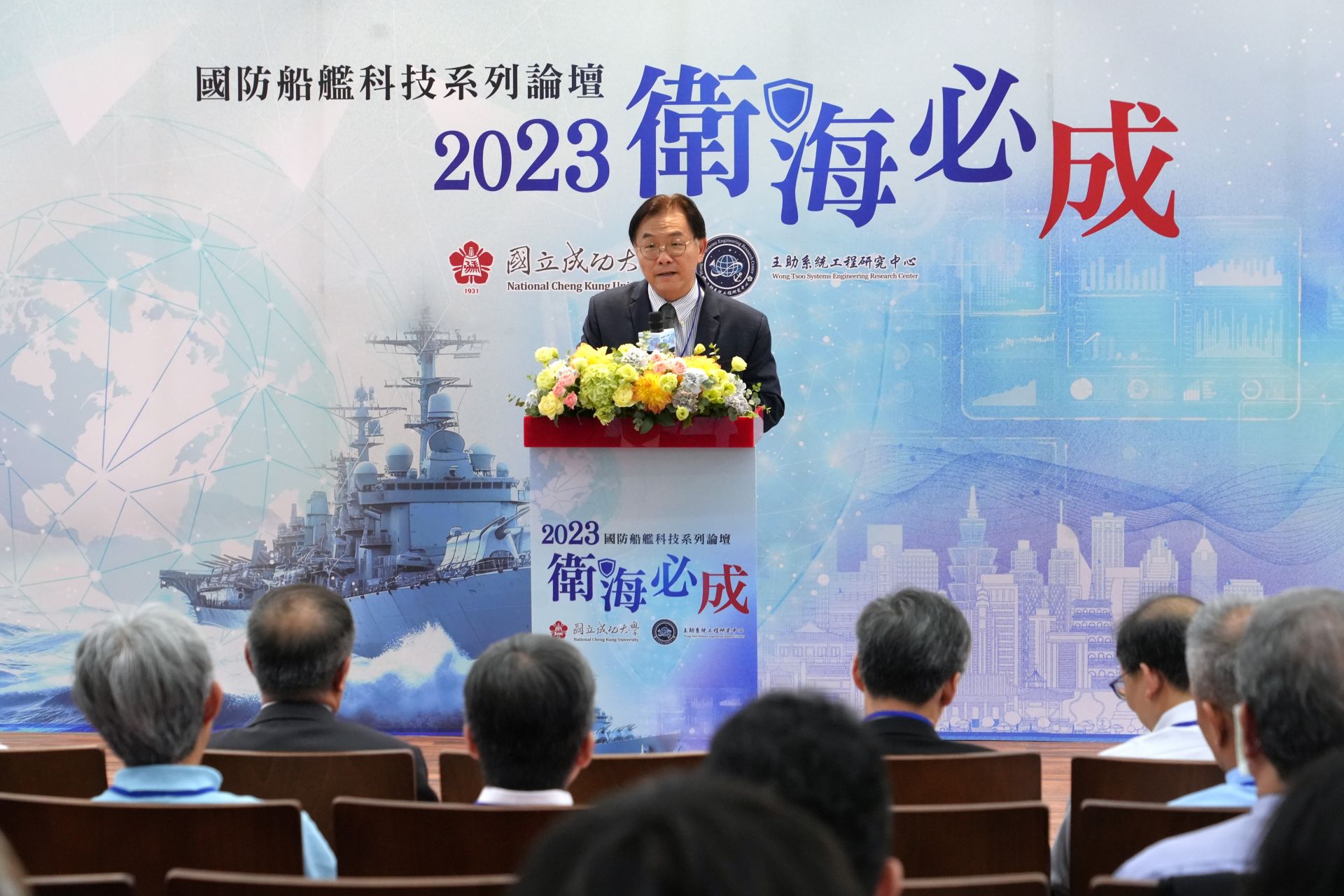
Vice President Woei-Jer Chuang said that NCKU is willing to collaborate with various universities to cultivate more interdisciplinary talent for the nation.
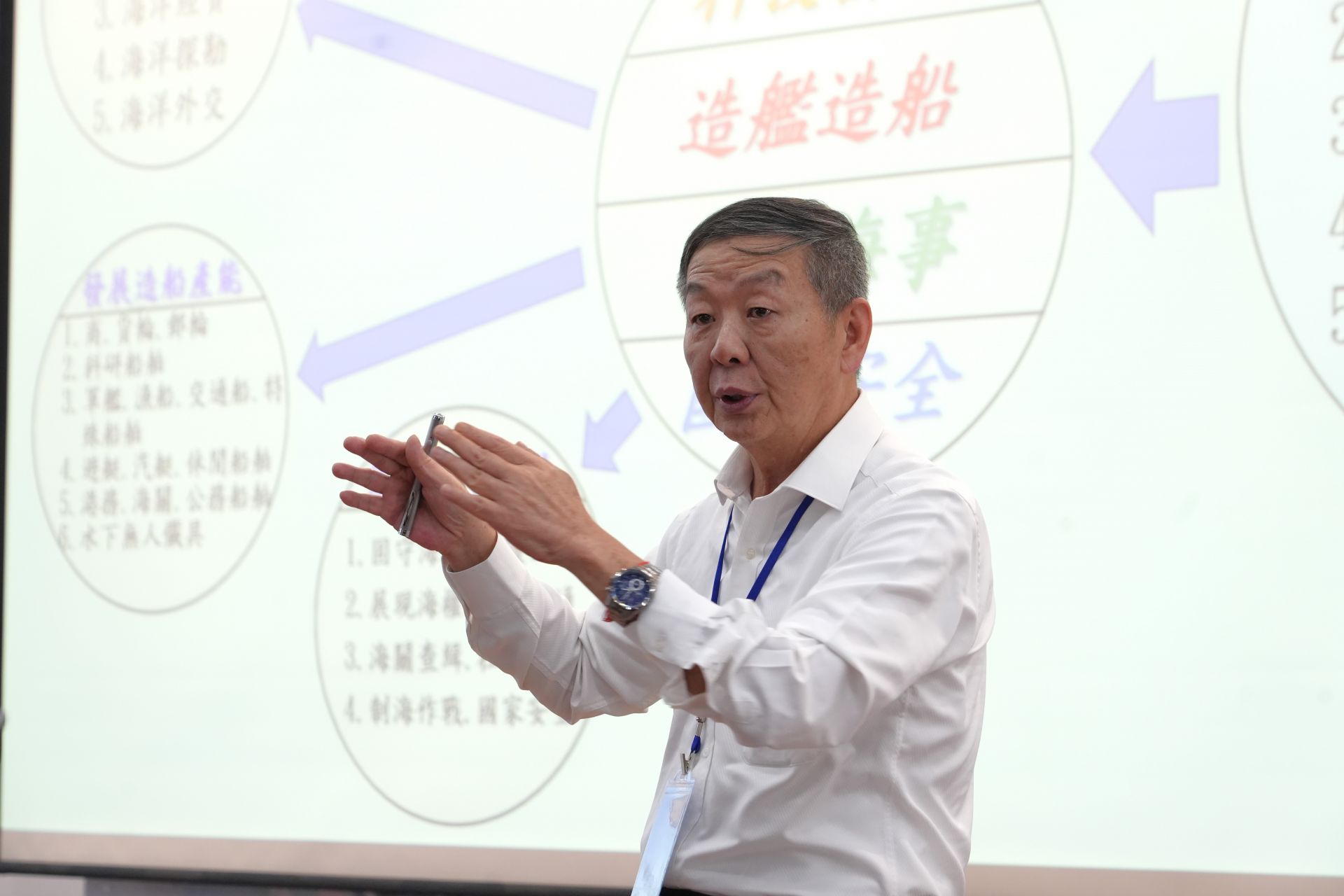
Admiral Shu-kuang Huang delivered a speech on "The Importance of Cultivating Talent in Naval and Submarine Engineering from a National Security Perspective."
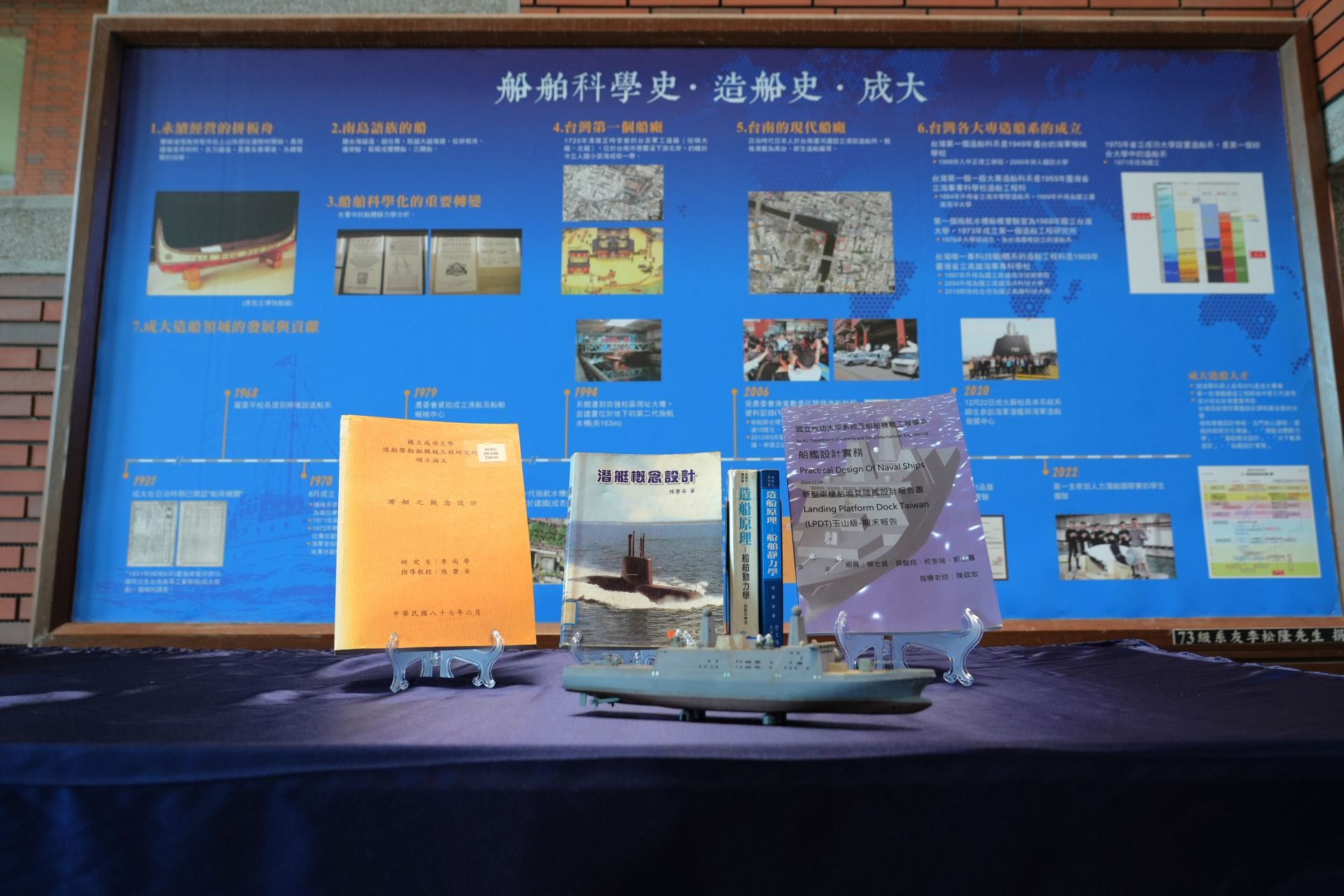
Outside the forum venue, there was an exhibition featuring master's theses on submarine design, course notes, submarine design textbooks, and design reports and models created by NCKU students.

